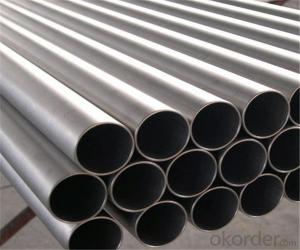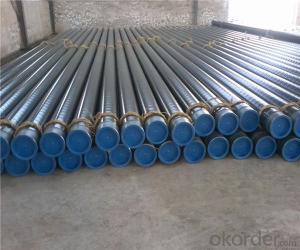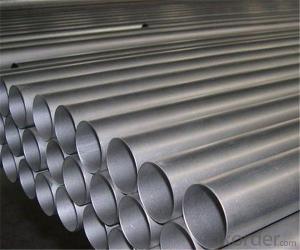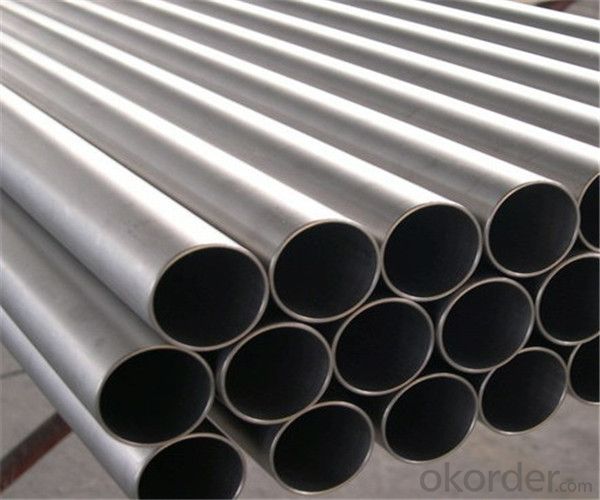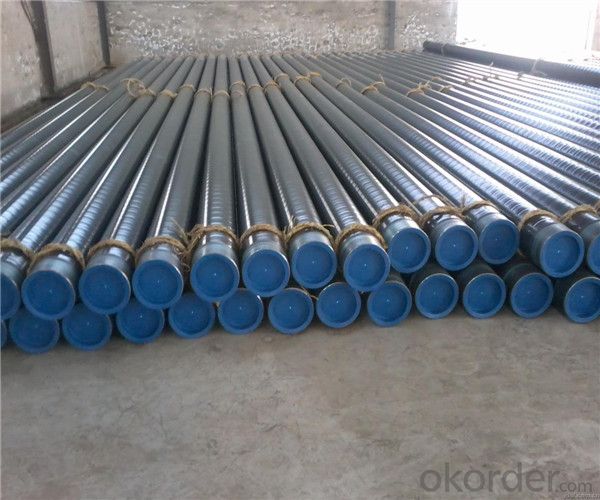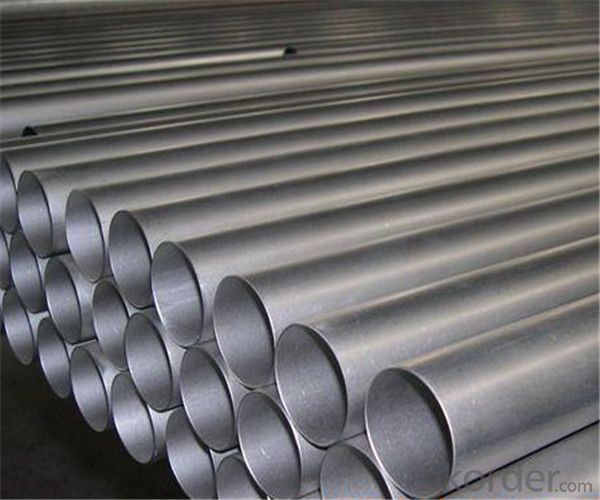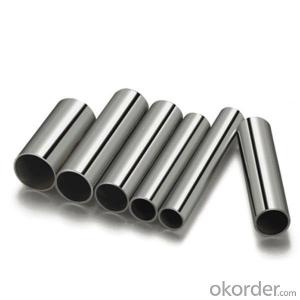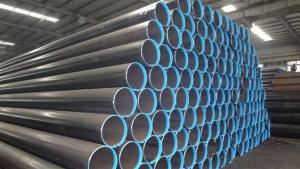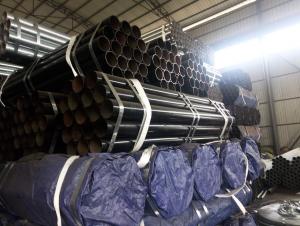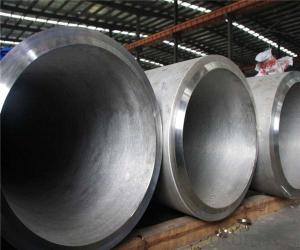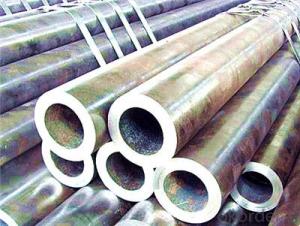Resonable Price Seamless Steel Pipe with High Quality from CNBM
- Loading Port:
- Tianjin
- Payment Terms:
- TT OR LC
- Min Order Qty:
- 200 m.t.
- Supply Capability:
- 3000000 m.t./month
OKorder Service Pledge
OKorder Financial Service
You Might Also Like
PRODUCT DETAILS
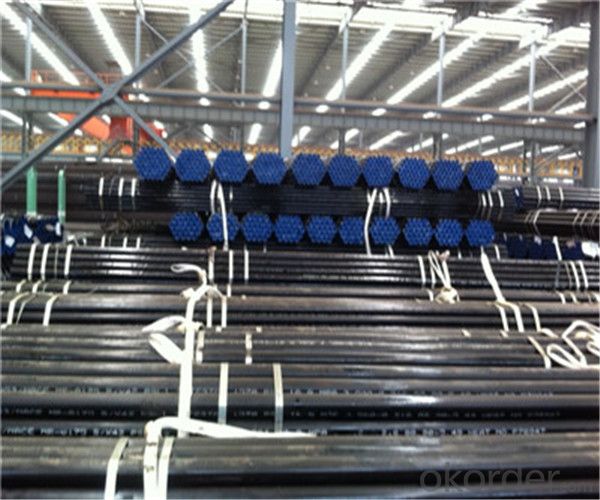
1.Structure of Seamless Steel Pipe Description:
A large amount of Seamless Steel Pipes is offered to the clients at cost effective rates. These pipes are extremely durable, resistant to corrosion and have high tensile strength. Our pipes are used in nuclear plants, power plants, refineries and construction industry across the country. Furthermore, we are capable of providing these seamless pipes to the clients in bulk quantity.
2.Main Features of the Steel Pipe:
• High manufacturing accuracy
• High strength
• Small inertia resistance
• Strong heat dissipation ability
• Good visual effect
•Reasonable price
4.Seamless Steel Pipe Specification:
| Standard: | GB, DIN, ASTM,ASME, ASTM A106-2006, ASTM A53-2007 |
| Grade: | 10#,20#, 45#, 16Mn |
Thickness: | 8 - 33 mm |
| Section Shape: | Round |
| Outer Diameter: | 133 - 219 mm |
| Place of Origin: | Shandong, China (Mainland) |
| Secondary Or Not: | Non-secondary |
| Application: | Hydraulic Pipe |
| Technique: | Cold Drawn |
| Certification: | API |
| Surface Treatment: | factory state or painted black |
| Special Pipe: | API Pipe |
| Alloy Or Not: | Non-alloy |
| Length: | 5-12M |
| Outer Diameter: | 21.3-610mm |
5.FAQ of Seamless steel pipe:
①How is the quality of your products?
Our products are manufactured strictly according to national and internaional standard, and we take a test
on every pipe before delivered out. If you want see our quality certifications and all kinds of testing report, please just ask us for it.
Guaranteed: If products’ quality don’t accord to discription as we give or the promise before you place order, we promise 100% refund.
②How about price?
Yes, we are factory and be able to give you lowest price below market one, and we have a policy that “ for saving time and absolutely honest business attitude, we quote as lowest as possible for any customer, and discount can be given according to quantity”,if you like bargain and factory price is not low enough as you think, just don’t waste your time.Please trust the quotation we would give you, it is professional one.
③Why should you chose us?
Chose happens because of quality, then price, We can give you both.Additionally, we can also offer professional products inquiry, products knowledge train(for agents), smooth goods delivery, exellent customer solution proposals.Our service formula: good quality+good price+good service=customer’s trust.
SGS test is available, customer inspection before shipping is welcome, third party inspection is no problem.
Any question, pls feel free to contact us !
- Q: Can steel pipes be used for underground stormwater drainage?
- Yes, steel pipes can be used for underground stormwater drainage. Steel pipes are commonly used in underground drainage systems due to their durability, strength, and resistance to corrosion. They can effectively manage the flow of stormwater and provide long-lasting solutions for underground drainage needs.
- Q: How are steel pipes used in the manufacturing of chemical processing equipment?
- Steel pipes are commonly used in the manufacturing of chemical processing equipment due to their durability, resistance to corrosion, and ability to handle high-pressure and high-temperature conditions. These pipes are used to transport various chemicals, gases, and liquids within the equipment, ensuring safe and efficient operations. They are also utilized for the distribution of heat transfer fluids, such as steam or hot water, to maintain optimal temperatures during chemical reactions.
- Q: What are the industries that commonly use steel pipes?
- Some of the industries that commonly use steel pipes include construction, oil and gas, manufacturing, transportation, and infrastructure.
- Q: Can steel pipes be used for transportation of hazardous materials?
- Yes, steel pipes can be used for the transportation of hazardous materials. Steel pipes are commonly used for transporting various types of hazardous materials such as chemicals, gases, and liquids. They are known for their strength, durability, and resistance to corrosion, making them suitable for safely transporting these materials over long distances. Additionally, steel pipes can be designed to meet specific safety standards and regulations to ensure the secure transportation of hazardous substances.
- Q: How are steel pipes used in wastewater treatment plants?
- Steel pipes are used in wastewater treatment plants for various purposes such as transporting wastewater, carrying chemicals and additives, and supporting the infrastructure.
- Q: What are the factors to consider when selecting steel pipes for a specific application?
- When selecting steel pipes for a specific application, factors such as pipe diameter, wall thickness, material grade, corrosion resistance, temperature and pressure requirements, environmental conditions, and cost should be considered. Additionally, factors like durability, strength, weight, ease of installation, and compatibility with other components in the system should also be taken into account.
- Q: What is the role of steel pipes in HVAC systems?
- Steel pipes play a crucial role in HVAC systems as they are used to transport hot or cold water, steam, and refrigerant gases throughout the system. They provide a durable and reliable conduit for the flow of fluids, ensuring efficient heating, cooling, and ventilation in buildings. Additionally, steel pipes are resistant to corrosion and can withstand high pressure, making them ideal for HVAC applications.
- Q: How are steel pipes used in underground drainage systems?
- Steel pipes are commonly used in underground drainage systems to transport wastewater and stormwater away from buildings and infrastructure. These pipes are durable and resistant to corrosion, making them suitable for underground applications. They are typically used for main sewer lines and stormwater drains, providing a reliable and long-lasting solution for effective drainage.
- Q: How do steel pipes handle seismic activities?
- Steel pipes are highly durable and flexible, making them well-suited for handling seismic activities. The inherent strength and elasticity of steel allow the pipes to withstand ground movements during earthquakes without fracturing or collapsing. Additionally, steel pipes can absorb and distribute seismic forces throughout their structure, reducing the risk of damage or failure.
- Q: Are steel pipes resistant to impact or external forces?
- Steel pipes are renowned for their resistance to impact and external forces. Their high strength and durability render them perfect for a wide range of applications, notably in the realm of piping. These pipes possess the remarkable ability to endure external forces, encompassing impact, pressure, and vibrations. Consequently, industries necessitating steadfast and robust piping systems, like oil and gas, construction, and infrastructure, frequently opt for steel pipes. Furthermore, when confronted with extreme conditions, steel pipes are less prone to cracking or breaking in comparison to other materials. Nonetheless, the extent of resistance to impact and external forces may hinge upon the specific grade and thickness of the steel employed in the pipes.
Send your message to us
Resonable Price Seamless Steel Pipe with High Quality from CNBM
- Loading Port:
- Tianjin
- Payment Terms:
- TT OR LC
- Min Order Qty:
- 200 m.t.
- Supply Capability:
- 3000000 m.t./month
OKorder Service Pledge
OKorder Financial Service
Similar products
Hot products
Hot Searches
Related keywords
